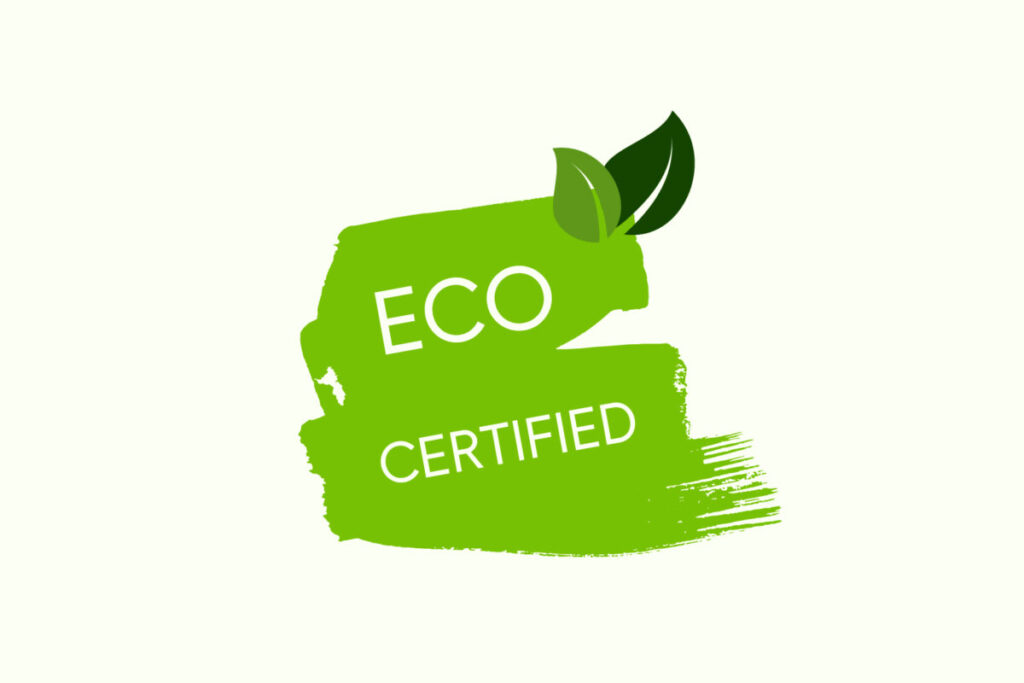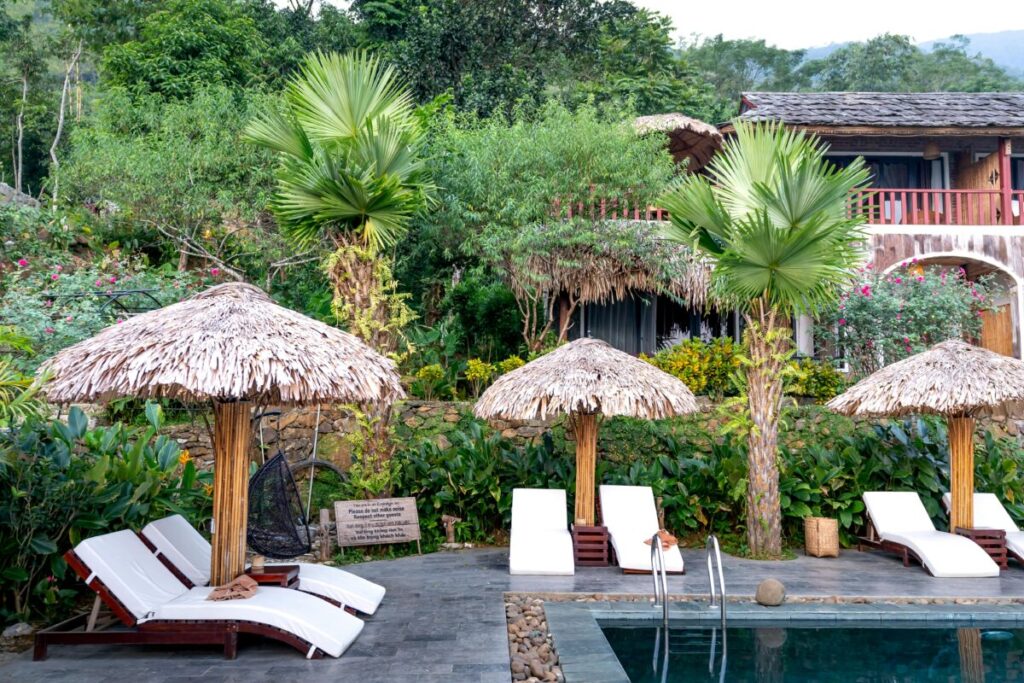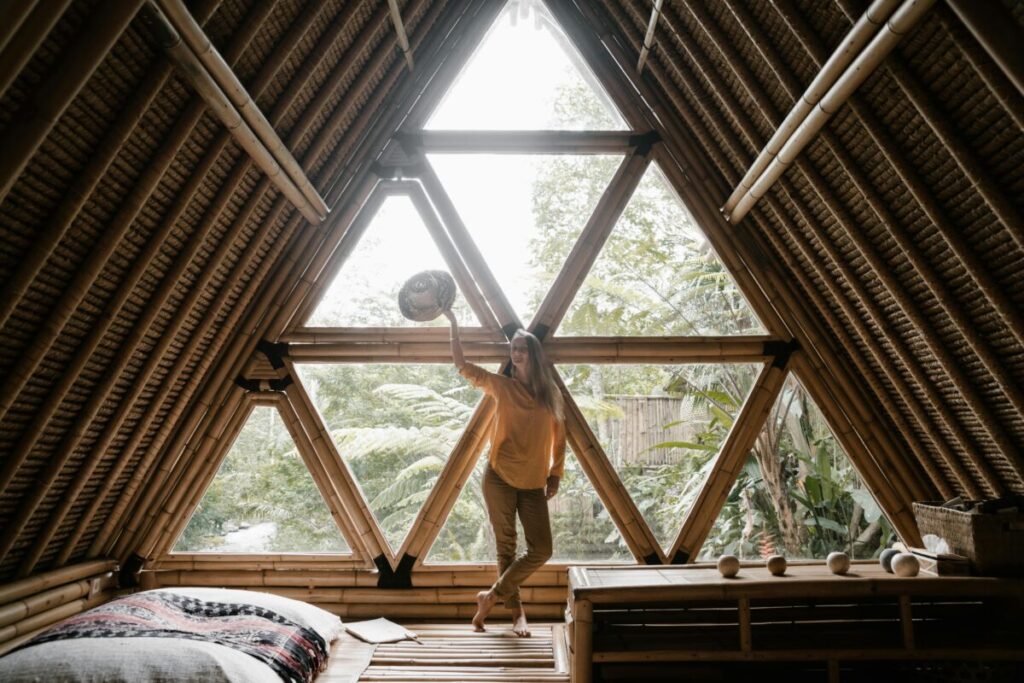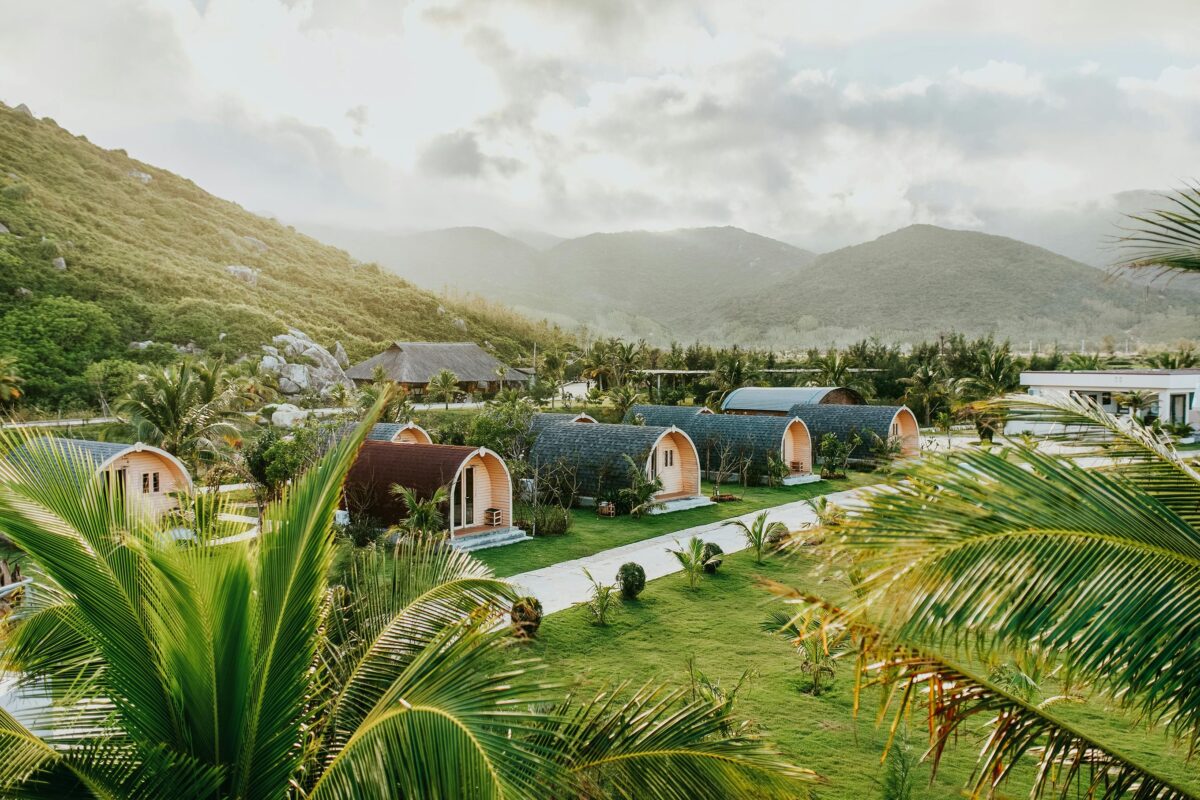On the hunt for eco-friendly places to stay during your next trip? It’s not just a passing fad—opting for sustainable accommodation actually helps protect those incredible destinations we all want to keep visiting.
When you’re picking eco-certified lodging, check for official certifications like Green Key or Earth Check on the hotel’s website. These badges back up their environmental promises, so you’re not just trusting vague “green” claims.
Lots of hotels talk about being sustainable, but only certification proves they’re actually doing the work. Real eco-friendly properties share specific details about things like energy and water conservation, waste management, and how they support the local community.
You’ll usually spot these details on their website, or you can just ask the staff—don’t be shy.
Key Takeaways
- Go for recognized eco-certifications instead of just trusting “green” marketing when you book
- Look for clear info about energy use, water conservation, and waste management
- Pick places that support local communities and culture if you want a more authentic, sustainable stay
Understanding Eco-Certified Accommodation

Eco-certified accommodation gives travelers a way to enjoy trips while leaving a lighter footprint. These places follow set guidelines to cut waste, save energy, and boost local communities.
Definition and Key Features
Eco-certified accommodation means hotels, lodges, and other places that environmental groups have officially recognized for their sustainable practices. Compared to regular hotels, these spots have to meet strict standards to get certified.
Some key features you’ll often find:
- Energy conservation—think solar panels, LED lights, smart thermostats
- Water-saving—like low-flow showers and rainwater collection
- Waste reduction—recycling, composting, the works
- Eco-friendly cleaning products that don’t trash the environment
- Local and organic food in the restaurant or breakfast buffet
You’ll probably notice natural ventilation, renewable building materials, and a design that fits right into the environment. Many of these places also give back by paying fair wages or running community projects.
Types of Eco-Friendly Lodging

Eco-lodges probably pop into your head first when you think of green accommodation. You’ll usually find them in natural settings—forests, wildlife reserves, that sort of thing—and they’re built to leave a tiny footprint.
Green hotels bring eco-friendly options to cities. Some are new builds with sustainable materials, while others are old buildings revamped with green tech.
Sustainable resorts mix luxury with responsibility. These bigger properties often have their own renewable energy sources and run major conservation efforts.
Farm stays give you a taste of rural life and support sustainable agriculture. You might even end up collecting eggs or picking veggies for dinner.
Tiny homes and glamping (yeah, glamorous camping) are catching on, too. They use fewer resources but still manage to be comfy and pretty memorable.
Difference Between Green and Eco-Certified
“Green” and “eco-certified” sound similar, but they’re not the same when you’re choosing where to stay.
“Green” is a loose term. Hotels might use it for any eco effort, even something tiny like asking you to reuse towels. There’s no official bar for calling a place “green,” so sometimes it’s just marketing fluff.
Eco-certification, though, means an independent group has checked if the accommodation meets strict environmental standards. It’s a formal review, not just a label.
Look for logos like Green Key, LEED, or EarthCheck when you book. Those mean experts have actually verified the property.
Certification usually covers energy use, water conservation, waste management, and community involvement. Some certifications are tougher than others, so it’s worth reading up a bit.
Importance of Eco Certification

Eco certifications let travelers make smarter choices for the planet while still having a great trip. These labels highlight which hotels really practice sustainability, not just talk about it.
What Makes a Certification Trustworthy?
Not every eco label is the real deal. The most reliable ones have tough standards and regular check-ins. Third-party verification is key—outside experts come in and see if the hotel’s actually doing what it claims.
The best certifications look at the whole picture: energy, water, waste, and community impact. EU Ecolabel and Green Key, for example, both require accommodations to hit specific benchmarks.
Transparency matters, too. Trustworthy certifications post their criteria online, so you can see exactly what it takes to earn that badge. They also update their requirements as science and best practices change.
How Certification Supports Sustainable Tourism
When you book eco-certified places, you’re basically voting for a better tourism industry with your wallet. These certifications push businesses to up their game on environmental and social fronts.
Certified hotels usually use fewer resources. They’ll install water-saving fixtures, energy-efficient lighting, and set up real waste management systems. That shrinks their environmental footprint and often saves them money.
Your stay at a certified spot means you’re supporting responsible travel beyond just the hotel. Many programs require hotels to buy food locally, hire people from nearby, and protect local culture.
Choosing certified accommodations helps grow the movement. As more travelers ask for sustainable options, more hotels chase certification, and the cycle keeps getting better.
Recognizing Reputable Eco Certifications
Trying to find truly sustainable accommodations? Knowing which eco certifications to trust can save you a lot of time and help you dodge greenwashing. Not all green labels have real substance behind them.
Major International Certification Bodies

Some global programs really stand out for their strict standards. Green Key is a big one—it operates in over 65 countries and covers water, waste, and energy efficiency. Hotels have to go through regular audits to keep their certification.
The Global Sustainable Tourism Council (GSTC) doesn’t certify hotels directly, but it accredits other certification bodies that meet its standards. If you see the GSTC-recognized label, that’s a good sign.
Green Globe certification asks properties to meet more than 40 sustainability criteria and show ongoing improvement. They do on-site audits every couple of years.
LEED (Leadership in Energy and Environmental Design) is mostly about building design and construction, but it’s becoming a big deal for new hotels that want to be sustainable from the start.
Regional and Local Certification Options
Lots of regions have their own respected eco certifications that tackle local environmental issues.
In Europe, the EU Ecolabel ensures properties meet tough standards for European ecosystems. Nordic Swan is a big name in Scandinavia, known for its thorough approach.
North America has Green Seal and Audubon Green Lodging, which look at everything from water use to sustainable purchasing.
Costa Rica’s Certificate for Sustainable Tourism (CST) stands out for developing countries, rating properties on a five-level scale based on resource management and community ties.
Regional certifications often have inspectors who really understand the local context and can spot greenwashing better than some international programs.
Energy Star and Other Recognized Seals
Energy Star certification is all about energy efficiency and is pretty respected in the hotel world. Hotels with this label generally use at least 35% less energy than similar places.
The TripAdvisor GreenLeaders program isn’t a formal certification, but it does check documentation of eco-friendly practices. Properties can earn bronze, silver, gold, or platinum status based on what they do.
B Corp certification looks at a company’s overall social and environmental impact. You won’t see it everywhere in hospitality, but when you do, it signals a deep commitment to sustainability.
If a hotel shows off several certifications, that’s usually a sign they take sustainability seriously across the board—not just in one area.
Evaluating Environmental Impact and Sustainable Practices
Going beyond eco-certifications, it’s worth looking at the specific practices hotels actually use. These steps show real commitment, not just marketing spin.
Assessing Carbon Footprint and Carbon Emissions

When you’re picking eco-friendly accommodation, check if the hotel tracks and shares its carbon footprint. Some responsible places display this info on their websites or in sustainability reports.
The best hotels set clear carbon reduction targets and share their progress. Some even offer carbon calculators so you can see your stay’s impact.
Transportation matters, too! Hotels that offer shuttles, bike rentals, or are close to public transit help cut your trip’s emissions. Some even give perks if you arrive by train or bus.
Ask about building efficiency. ENERGY STAR certified hotels typically use about 35% less energy than average. Good insulation, smart thermostats, and LED lighting really add up.
Water Conservation Efforts
Water-saving steps are a big clue to how committed a hotel is. Look for low-flow showerheads, faucet aerators, and dual-flush toilets throughout the place.
A lot of eco-conscious hotels collect rainwater for landscaping or set up recycling systems for laundry. Some even plant drought-resistant gardens with native plants that barely need watering.
Check if there’s a linen reuse program so you can keep sheets and towels for a few days. That simple move saves a lot of water.
Smart hotels track water use and set goals to cut back. They might even share water-saving tips with guests or give rewards for conservation. Some treat and reuse greywater from sinks or showers for toilets or gardens.
Renewable Energy Sources and Usage
The most responsible accommodations invest in renewables. Look for hotels with solar panels, wind turbines, or even their own small hydro stations. Some proudly show off these features.
If they can’t generate all their energy, some hotels buy renewable energy credits to offset their grid use. You can ask what share of their energy comes from renewables.
Smart energy management systems that adjust lighting and temperature when rooms are empty show real dedication to conservation. Some even use key cards that cut power when you leave.
Energy-efficient appliances throughout the hotel are a good sign. The best eco-hotels have building management systems that constantly monitor and optimize energy use.
Waste Management and Plastic-Free Initiatives
Cutting waste starts with ditching single-use stuff. The greenest hotels have swapped out mini toiletry bottles for refillable dispensers and dropped plastic water bottles, straws, and packaging.
Check if the hotel recycles more than just paper and plastic. The best ones compost food scraps and have ways to handle hazardous waste like batteries.
Reducing food waste is important, too. Responsible hotels portion meals carefully, use local ingredients, and donate leftovers when possible. Some even compost scraps for their gardens.
Ask about how they buy supplies. Truly sustainable hotels buy in bulk to cut packaging and pick products with recycled content. They might team up with suppliers who reuse shipping materials.
Supporting Local Communities and Culture
Picking eco-certified accommodation often means you’re supporting the local community, too. Connecting with local people and traditions makes for richer experiences while helping preserve the culture.
Community Projects and Initiatives

When you book an eco-friendly stay, check if the place gets involved in local projects. Many sustainable hotels team up with schools, clinics, or conservation groups. Some offer guests a chance to volunteer at a wildlife sanctuary or help with a beach cleanup.
Ask if they have any community-focused certifications or partnerships. Good eco-lodges usually share this on their websites or can tell you more if you reach out.
You can also see if they hire local staff for management jobs, not just entry-level roles. That shows a real commitment to empowering the community.
Contribution to the Local Economy
Supporting the local economy starts with picking locally-owned places when you can. Family-run guesthouses, small eco-lodges, and homestays keep more money in the community than big chains.
Look for places that:
- Buy food from local farmers and markets
- Hire staff from nearby
- Furnish with locally-made decor
- Use local guides for tours
Many eco-conscious accommodations reinvest part of their profits into the community. That might mean helping fund schools, health projects, or clean water.
Ask about these before you book. A truly sustainable place will be happy to share how they help the local economy.
Promotion of Local Cuisine and Culture

Food really tells a story. Great eco-accommodations serve up local dishes with regional ingredients. Some offer cooking classes with local chefs or tours of the neighborhood market.
Beyond food, sustainable places often showcase culture with:
- Local art and crafts in the decor
- Performances or demonstrations on-site
- Books and info about the area’s history
- Connections to authentic experiences nearby
The best eco-properties act as cultural guides, helping you understand and respect local customs. They might give you tips on what to wear at religious sites or local etiquette.
If you pick places that celebrate local culture, you’ll get a more authentic trip and help keep those traditions alive.
Comparing Different Types of Sustainable Accommodation
When you’re searching for eco-friendly places to stay, you’ll find a bunch of options that balance comfort and sustainability. Each one offers something different while shrinking your travel footprint.
Staying at Eco-Lodges and Green Hotels

Eco-lodges usually blend right in with their natural surroundings and aim for minimal impact. They often use renewable energy like solar panels and set up water conservation systems. Many are built with sustainable materials and serve local food.
Green hotels, meanwhile, are mostly in cities but still focus on sustainability. Look for certifications like LEED, Green Key, or EarthCheck. These places often have energy-efficient lighting, low-flow fixtures, and recycling programs.
When you’re choosing, think about what’s most important to you. Want to be immersed in nature? Go for an eco-lodge. Need city convenience but still want green practices? A certified sustainable hotel might be your best bet.
Camping and National Parks Options

Camping’s probably the most direct way to unplug and get close to nature, all while keeping your impact low. These days, lots of campgrounds actually offer recycling, water-saving setups, and sometimes even solar panels powering things like showers or lights.
National parks are on board with sustainability, too. Many park lodges now follow strict environmental guidelines. You’ll find that these places blend rustic vibes with eco-friendly touches, like:
- Using renewable energy
- Water-saving systems
- Waste reduction programs
- Menus featuring local food
If you want something between camping and hotels, glamping might be your thing. It’s comfortable, but still leaves a smaller footprint than most traditional hotels.
Stick to leave-no-trace principles when you’re out there. Pack out what you bring, stay on marked trails, and respect wildlife habitats. That’s how we keep these wild places beautiful for everyone.
How to Research and Book Eco-Certified Lodging

Finding truly eco-friendly accommodations isn’t always straightforward. But with a little effort, you can book places that fit your values and still feel comfortable.
Verifying Certification and Claims
Start by checking the hotel’s website for legit eco credentials. Look for certifications like Green Seal, LEED, or EarthCheck—something more solid than just “we love nature.” These usually involve outside experts checking that the place actually meets real environmental standards.
Not all “green” claims mean much, though. Some hotels just throw around eco buzzwords without doing much. If a property’s really eco-certified, they’ll show off their certificate and probably explain what they’re actually doing for sustainability.
It also helps to get familiar with organizations that rank hotels on eco-friendliness. These groups look at things like energy, water, and waste. You can often search their sites directly for certified places in your destination.
Finding a Wide Range of Options
EcoHotels.com is a handy site—it lists both certified and non-certified hotels, so you can compare. More travel sites now let you filter for eco-friendly spots, which saves some hassle.
Don’t just look at hotels, though! Eco-certified places come in all shapes and sizes:
- Boutique hotels
- B&Bs and guesthouses
- Eco-lodges and retreats
- Sustainable hostels
- Green vacation rentals
Prices are all over the map. Eco-certified doesn’t always mean pricey. Plenty of budget or mid-range places have strong green programs, especially where sustainability’s a big deal.
Location matters, too. Sometimes a spot in the center of town, where you can walk or take public transit, is more eco-friendly than a remote “green” resort you have to drive to.
Evaluating Guest Reviews and Environmental Performance
Guest reviews can reveal a lot about whether places walk the talk. Look for mentions of things like recycling bins, low-flow showers, or energy-saving efforts.
If reviews complain about single-use plastics, blasting AC, or daily linen changes when they claim to be green, that’s a red flag.
Consider how the property handles:
- Energy: Are they using renewables or efficient lighting?
- Water: Low-flow fixtures, rainwater collection, smart irrigation
- Waste: Recycling, composting, avoiding single-use stuff
- Food: Local and organic options, vegetarian/vegan choices, less food waste
If you’re not sure, just ask. Contact the property with specific questions about their green practices. How they respond can tell you a lot.
Frequently Asked Questions
Eco-friendly accommodations can be confusing—so many places claim to be “green.” Let’s tackle some common questions and clear things up a bit.
What should I look for to ensure an accommodation is up to eco-friendly standards?
Check for recognized certifications like LEED, Green Key, or EarthCheck on the hotel’s website or at the property. These mean the place met real environmental standards.
Look for visible policies that go beyond just towel reuse. True eco-friendly spots will have detailed efforts for water, energy, waste, and materials.
Notice the small stuff—LED lighting, refillable toiletries instead of single-use plastics, recycling bins in rooms. Those details usually mean they’re serious.
Could you guide me through the process of verifying a hotel’s commitment to sustainability?
Start by digging into the hotel’s website. Is there a real sustainability section with details, or just vague “we care” statements?
Call the front desk and ask about their green practices. If the staff know what’s up and seem proud of their efforts, that’s a good sign.
Check recent guest reviews for mentions of actual eco-friendly experiences. People usually notice if the claims match reality.
What are the telltale signs that a hotel isn’t just ‘greenwashing’?
Real eco-friendly hotels share specific sustainability goals and what they’ve achieved—not just “we’re green” slogans.
Look for transparency about their impact. Hotels that take it seriously often publish stats on carbon footprint, water use, or waste.
Watch for consistency. If they claim to be eco but use disposables everywhere or wrap everything in plastic, something’s off.
How do eco certifications for hotels differ from one another and which ones are most reputable?
LEED focuses mostly on building design and energy efficiency, so it’s big for newer, purpose-built properties.
Green Key and EarthCheck look at the bigger picture—operations, community, guest education, and more.
Regional certifications like the EU Ecolabel (Europe), Green Tourism (UK), and Green Seal (US) are respected but have different criteria and focus.
The Global Sustainable Tourism Council (GSTC) sets a framework that many top certifications follow. If a program is GSTC-recognized, you’re probably in good hands.
In what ways can I check for a hotel’s actual implementation of their advertised eco-friendly measures?
When you check in, ask to see some of their green features. Many hotels are happy to show off solar panels, water systems, or even their gardens.
Watch how things run day-to-day. Are they really limiting linen changes? Using eco cleaning products?
Check the little things in your room. Have they ditched single-use plastics? Are lights and climate controls energy-efficient? Sometimes it’s the details that tell the real story.
What are the top questions to ask a hotel to gauge their dedication to environmental practices?
So, first off—ask, “What percentage of your energy comes from renewable sources?” That question really gets to the heart of whether they’re actually doing more than just posting signs about turning off lights.
Try, “How do you minimize food waste, and do you source ingredients locally?” You’ll get a sense of whether they’re serious about cutting their carbon footprint and if they’re actually supporting local farmers or just saying so.
Another good one: “What are your water conservation practices beyond asking guests to reuse towels?” You want to hear about things like low-flow fixtures, rainwater collection, or maybe even gray water recycling.
And honestly, don’t forget to ask, “How do you engage with and benefit the local community?” Sustainability isn’t just about the environment—it’s about making a real difference for people living nearby.

Leave a Reply